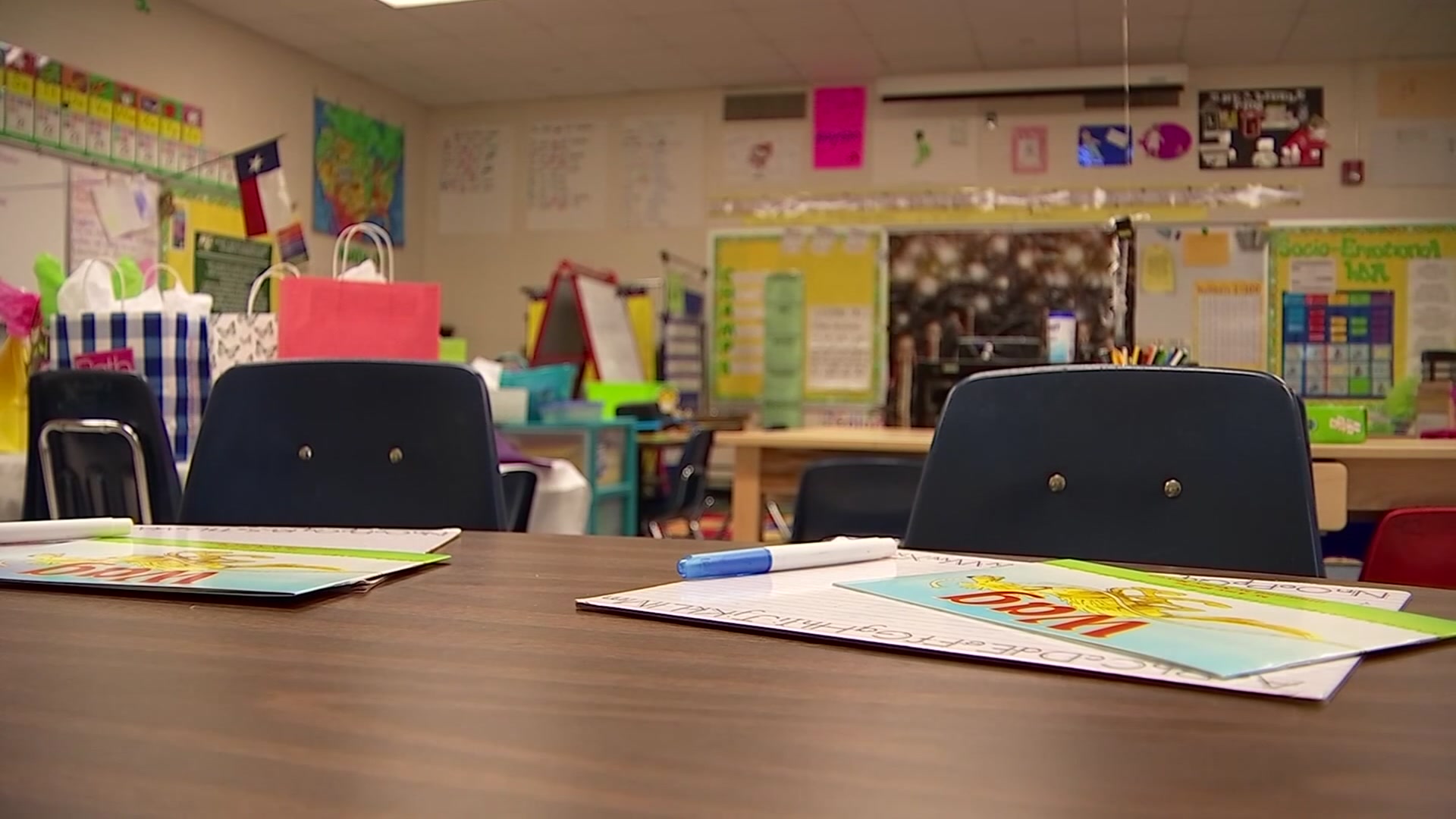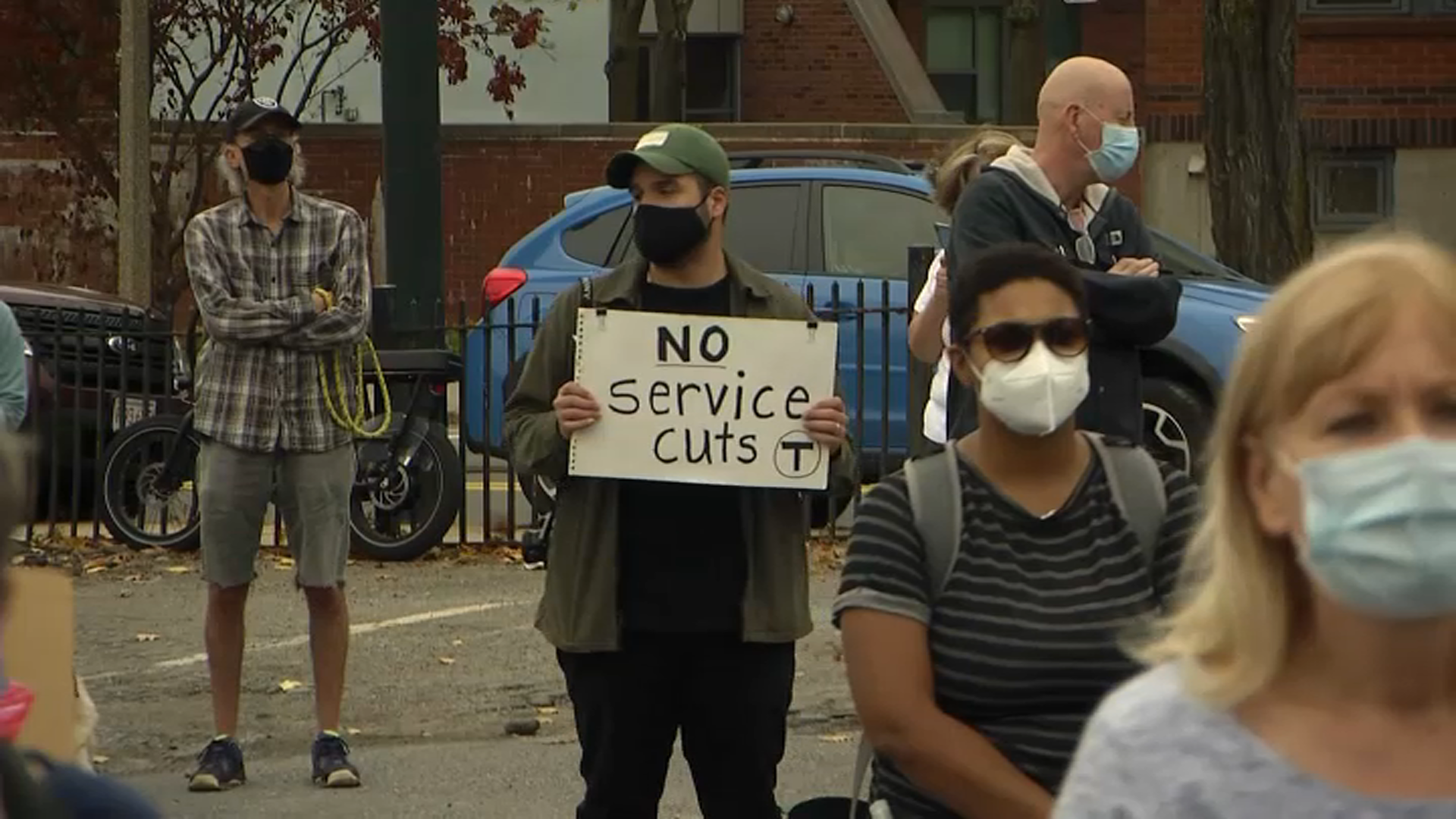A group of MBTA employees and commuters were scheduled to hold a rolling rally outside the agency's Boston headquarters on Thursday morning to speak out against proposed service cuts.
The rally, organized by Public Transit Public Good, was in response to proposed service cuts the MBTA put forward earlier this month due to a decline in ridership and revenue as a result of the coronavirus pandemic.
Organizers are calling for investment in the MBTA, rather than budget and service cuts. Lee Matsueda, Executive Director of Community Labor United and a member of the Public Transit Public Good coalition, says people need a transit system that is affordable and accessible "now more than ever."
“COVID-19 has reshaped our daily lives,” Matsueda said in testimony to the fiscal management and control board on Monday. “Bus and train services remain critical for the riders who take hundreds of thousands of trips every day, and especially the essential workers who have kept our communities running during this pandemic.
Organizers are asking the board to focus on options to provide sustainable revenue for the MBTA, saying the system's "chronic underfunding" has only been magnified by the pandemic's effects on ridership and revenue.
The rally hopes to highlight the negative effects that service reductions during the pandemic would mean for riders, workers and communities that rely on the T, according to organizers.
The MBTA said the changes are intended to match service to new ridership patterns resulting from the COVID-19 pandemic. The T is now only transporting 330,000 trips on an average weekday but has continued to run the same levels of service as it ran to serve 1.26 million daily trips prior to the pandemic.
“COVID-19 has had a significant impact on ridership and the MBTA is releasing these proposed changes to adjust to the realities created by COVID-19, while protecting service for those who depend on it most,” Poftak said.
Any changes would not go into effect immediately, but some of them would take place in early 2021.
The proposed service changes include:
Rapid transit
The Red, Orange, Blue, and underground Green Line stations are experiencing approximately 120,000 gated entries on weekdays, which is about 24% of its pre-COVID numbers. Proposed service level changes for the Red, Orange, Blue and Green lines and Mattapan trolley include:
- Weekday and Saturday service will operate from 5 a.m. to midnight (currently until 1 a.m.) and Sunday service will operate from 6 a.m. to midnight (currently until 1 a.m.).
- Reduce peak frequency by 20% and reduce off-peak frequency by an additional 20 percent on all lines.
- The Green Line E Branch will terminate at Brigham Circle, with customers able to transfer to Bus Route 39, which mimics E Branch service from Brigham Circle to Heath Street.
Bus
Buses are experiencing about 171,000 weekday boarding, which is approximately 41% of its pre-COVID ridership. Proposed service level changes include:
- All bus service will stop at midnight, though early service will continue on essential bus routes.
- Eighty essential bus routes will see an average change in service of just 5% and routes with high ridership will not be changed.
- Sixty non-essential bus routes will operate 20% to 30% less frequently.
- Approximately 10 routes will be consolidated or restructured.
- Approximately 25 routes that served less than 0.5% of pre-COVID riders (about 1,700) will be eliminated.
Commuter rail
The Commuter Rail is experiencing approximately 13% of its pre-COVID ridership, with about 8.5% of its normal ridership during morning peak periods. As a result, the following changes are proposed (with the exception of the Fairmount Line):
- No evening service after 9 p.m.
- No weekend service (except for the Fairmount Line, which will be bused).
- Decreased weekday peak service and some midday service, reducing from 505 trains (fall 2019) to 430 trains.
- Close six (out of 141) stations based on low ridership, operational impacts, and availability of alternatives.
- Specific service levels by line will take into account ridership patterns from adjusted Fall 2020 schedules with more balanced service throughout the day.
Ferry
- Ferry ridership is approximately 12% of pre-COVID ridership, averaging seven passengers per boat, and passengers have either bus or commuter rail service as an alternative. As a result, all ferry service (F1, F2H, F4) is proposed to be stopped.
- Charlestown/Boston service (F4) has experienced very low COVID ridership and highly redundant bus service is available on Interstate 93 (an essential bus route which currently has minimal crowding and can support diverted ferry riders.
- Hull and Hingham service has also experienced very low ridership due to COVID-19 and passengers can use the Commuter Rail Greenbush line.
The RIDE
- With changes being proposed to the area and hours of operation of fixed route services, some RIDE trips may become “premium trips,” though RIDE service boundaries would not change.
- Some trips will be able to be booked 40 minutes from request time instead of the current 30 minutes.
Agency staff have been drafting plans for months to trim tens or hundreds of millions of dollars from what the T spends on transportation services ahead of a board vote expected in December.



